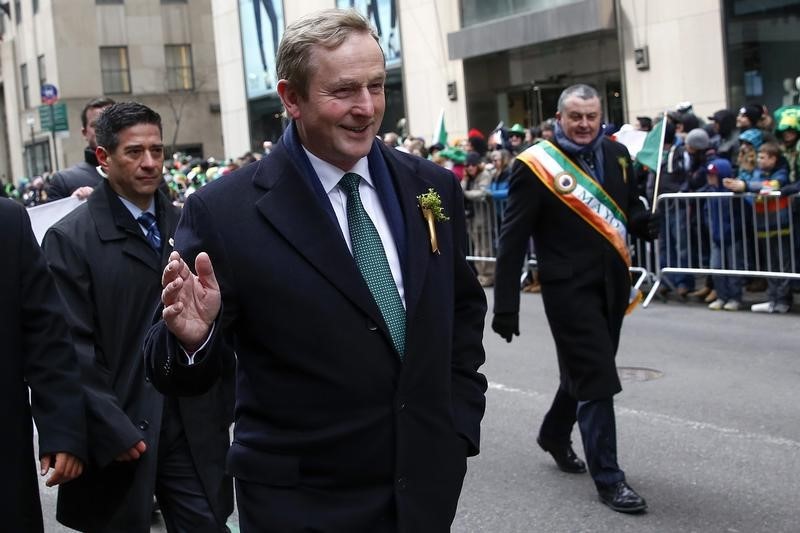DUBLIN (Reuters) - Irish Prime Minister Enda Kenny won a confidence motion with the full support of the government on Tuesday, but the first vote called over his three-and-half year premiership highlighted his and the coalition's recent political troubles.
Kenny guided Ireland out of an international bailout a year ago and is presiding over an economy set to grow faster than the rest of Europe this year but frustration over an uneven recovery has led to a plunge in government support in opinion polls.
Kenny won by 86 votes in favour and 55 against, including the support of junior coalition partners Labour, who recent polls suggest could be facing a near-wipeout at parliamentary elections due in early 2016.
"No person is perfect. No government is perfect. Nor am I," Kenny told parliament after listing the coalition's achievements before saying he was as impatient as everyone else that the benefits of recovery be felt right across the country.
"Of course we didn't get everything right along the way. I am the first to acknowledge that. We must and will learn from our mistakes and do better for the people of Ireland."
Opponents said the real confidence vote would take place on the streets on Wednesday when a third day of mass protest is planned against new water charges. Marches in the last two months were the largest since Ireland's financial crisis began.
The collapse in support for Kenny's Fine Gael party, which has coincided with the growing protest, has raised the prospect of a rare deadlock in Ireland at the next election with polls pointing to a surge in support for independent candidates.
Kenny said he had no intention of creating any instability by calling an election next year but analysts have begun looking ahead to 2016 and the potential for political risk.

"The latest opinion polls focus attention on what we believe to be one of the biggest downside risks to our otherwise bullish view on the Irish sovereign - politics," Fiona Hayes, an analyst at Cantor Fitzgerald, said in a note this week.
(Reporting by Padraic Halpin; editing by Ralph Boulton)